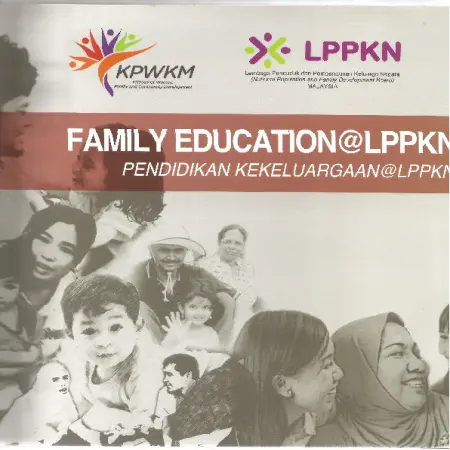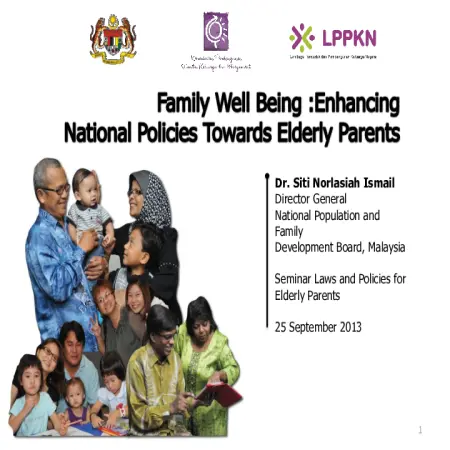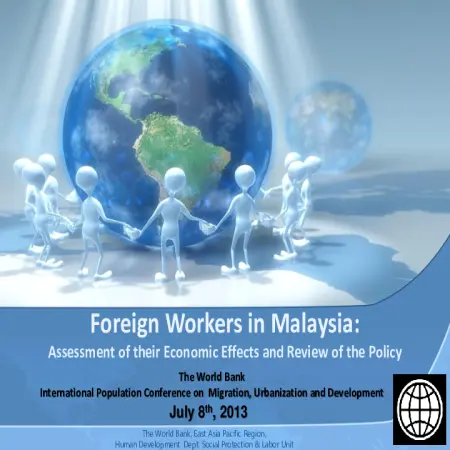Browse by Year
Results for Year : "2013"
|
|
Family education@LPPKN = Pendidikan kekeluargaan@LPPKN
Item Type: Book
Editor:
Year: 00/00/2013
Abstract: The National Population and Family Board (NPFDB), agency under the Ministry of Women Family and Community Development which was initially known as the National Family Planning Board (NFPB) was established in 1966 as a statutory body. Its main objective was to implement the National Family Planning Programme but its scope has now been expanded to Population, Family Development and Reproductive Health which is in line with 1984 Amendments Act. The Malaysian family today is facing numerous challenges due to rapid socio-economic development and globalization. New challenges have emerged in the social and economic arena, which have had an impact on Malaysian families. Among the challenges experienced by the family institution are changing family structure and dynamics, balancing family and career, fulfilling economic needs parenting of young children and adolecents as well as weakening marital and family relationships. Parallel with the Government's emphasis on strengthening the family institution, the NPFDB has developed and implemented a wide range of family development programmes encompassing advocacy activities and promotion, training and education, services, research and development (R&D) as well as policy formulation. In December 2010, the Government approved the National Family Policy and its Plan of Action, thus mainstreaming the family perspective in all socio-economic planning and development.
|
|
|
|
|
|
Factors influencing family life satisfaction among parents in Malaysia: the structural equation modeling approach (SEM))
Item Type: Article
Editor:
Year: 00/00/2013
Abstract: The study attempts to investigate the factors that influence family life satisfaction (FLS) among parents in Malaysia. The study modeled the variable of parental involvement, family functioning, family resilience and time with family as independent constructs. Data for the study was gathered from nationally representative survey of “Family Well-Being Index” study conducted by National Population and Family Development Board Malaysia. Response from 2808 sampled households which involved about 1484 (52.8%) fathers and 1324 (47.2%) mothers of having a child aged at least 13 years old were utilized for the purpose of the current study. A Structural Equation Modeling (SEM) was employed by using Analysis of Moment Structure (AMOS) software. The study found all the modeled independent constructs tested had a significant and direct influence on family life satisfaction among the respondents except for parental involvement construct. The findings of the study suggests that some improvement should be made for the parental involvement constructs which covers different aspects of family life satisfaction which will lead the measurement model be more heterogeneous.
|
|
|
|
|
|
Family well being: enhancing National Policies towards elderly parents
Item Type: Conference or Workshop Item
Editor:
Year: 00/00/2013
Abstract: Malaysia will be aged by the year 2030. The objective of National Policy for Older Persons, 2011 is to enhance the respect for and self-worth of the elderly in family, society and nation, to develop the potential of the elderly so that they remain active and productive in national development and to create opportunities for them to continue to live independently and to encourage the establishment and the provision of specific facilities to ensure the care and protection of the elderly.
|
|
|
|
|
|
Foreign workers in Malaysia: assessment of their economic effects and review of the policy
Item Type: Conference or Workshop Item
Editor:
Year: 00/00/2013
Abstract: This study aims to help Ministry of Human Resource to better manage existing human resources in the country and to plan for the development of future human capital needs.
|
|
|
|








